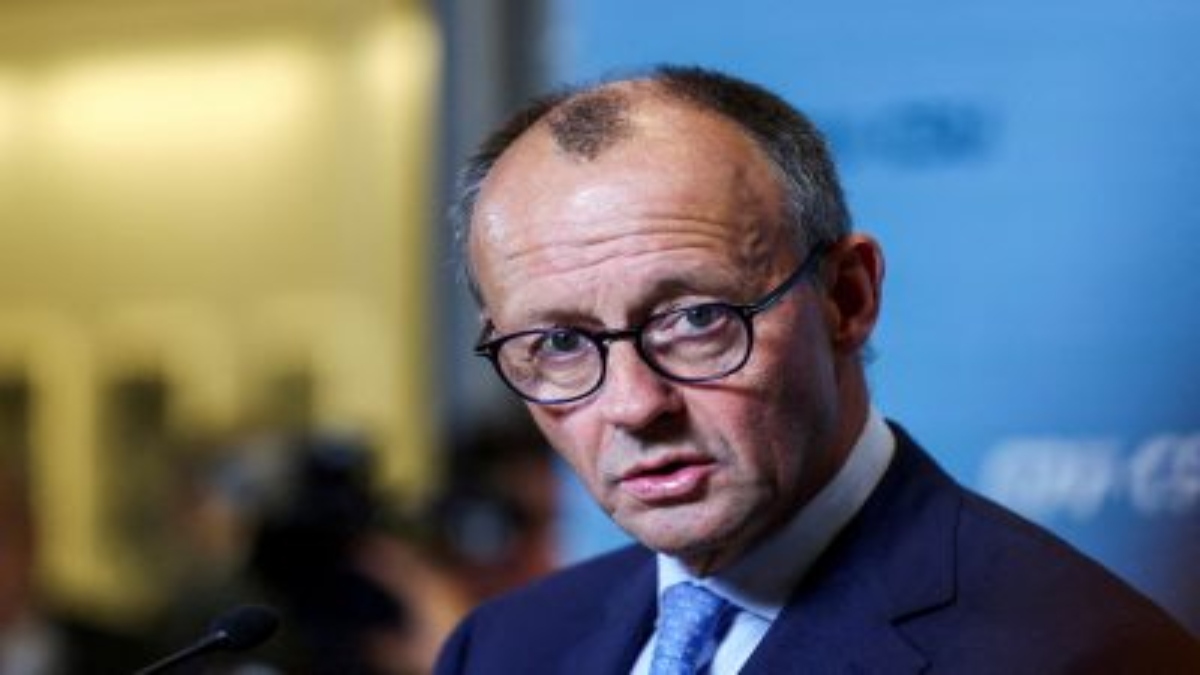Former Chancellor Angela Merkel’s criticism of Friedrich Merz, the current conservative front-runner in Germany, is well-known. However, he faces a broader challenge: a significant gender gap in support from voters.
According to a Politico report, citing the Ipsos survey conducted in early February, only 15% of women identify Merz as the political leader best suited to become chancellor, compared to 21% of men.
This disparity marks what many refer to as Merz’s “women problem”, added the report.
The only other candidate demonstrating a similar divide is Alice Weidel, leader of the far-right Alternative for Germany (AfD) party, who also trails in support among women.
In contrast, support for Green Party leader Robert Habeck and incumbent Chancellor Olaf Scholz shows no significant gender gap, although Scholz received slightly higher approval from men in the same February poll.
According to the report, the gender gap is especially evident among younger voters.
A survey from last year shows that women aged 14 to 29 exhibited significantly less support for Merz’s party than their male counterparts. The study also highlighted reduced female backing for the AfD and increased indecision among young women regarding party affiliation.
Merz’s difficulties extend beyond polling numbers.
Throughout the campaign, his opponents have highlighted past statements and voting records that some critics characterize as misogynistic. In response, Merz’s conservative alliance, comprising the center-right Christian Democratic Union and its Bavarian counterpart, the Christian Social Union, has sought to mitigate this negative perception while grappling with the challenges posed by their lead candidate’s weak appeal among female voters, reported Politico.
Impact Shorts
More Shorts“The CDU/CSU has of course countered personal campaigns against Friedrich Merz,” Andrea Lindholz, a senior CSU parliamentarian, told Politico, describing how the party targeted women voters on social media to refute Merz’s female-unfriendly image ahead of the February 23 election.
That effort included the Instagram page frauenfuermerz2025 or “Women for Merz 2025,” where conservative women speak out in favour of their chancellor candidate.
Merz, who briefly left politics for corporate life after losing prominence to Angela Merkel in 2009, has shown mixed support for female representation.
At his first CDU party conference as leader in 2022, he introduced a gradual temporary quota for women. As of 2024, 27% of CDU members are women, with one in four CDU parliamentarians in the Bundestag. This positions them similarly to the liberal Free Democratic Party but significantly ahead of the AfD, which has only nine women among its 76 Bundestag members. However, the CDU lags behind the Social Democratic Party (SPD), where over 40% of members are women, and the Greens and The Left, both boasting more than 50% female representation, reported Politico.
“My wish is that we encourage more women to take on a political mandate. Women work and lead differently. Mixed teams work better. Women make politics better,” Merz wrote in the run-up to the current election campaign.
Just three days later, Merz dismissed the idea of gender parity in a Cabinet under his leadership, arguing it could result in choosing the wrong candidate, citing the example of former female Defence Minister Christine Lambrecht, who resigned from Scholz’s center-left government in early 2023 after several missteps.
Saskia Esken, a female leader in Scholz’s SPD, criticised this stance during a campaign event, stating it was “not doing women a favour by ‘overburdening’ them in leadership positions.”
“What century is this man actually living in?” Politico quoted Esken as saying.
“Together, we will prevent him from kicking women out of leadership positions. This man has no place in the chancellor’s office,” she added.
Merz, acutely aware of his reputation, has made somewhat clumsy attempts to dispel the idea that he holds outdated views on women’s roles.
In his 2021 candidacy speech for the CDU party chairmanship, he addressed the perception of having an “outdated image” of women, saying, “If that were the case, my daughters would have shown me a yellow card long ago. And my wife wouldn’t even have married me 40 years ago.”
However, observers note that the 69-year-old’s professional circle is predominantly male.
In past decades, Germany’s conservatives enjoyed stronger support from women than men, thanks to their focus on family values and stability, Robert Grimm, director of politics and social research for Ipsos in Germany, told Politico.
However, this trend faded towards the end of Merkel’s leadership.
Grimm emphasised that under Merkel, the CDU was more socially oriented, portraying a “mother of the nation” image, which resonated with female voters. “Angela Merkel’s CDU was certainly more of a social CDU, more of a caring CDU,” he was quoted as saying.
Concerns have emerged within the party that Merz’s rightward shift may alienate young people, women, and families with migrant backgrounds.
Mario Czaja, who served as CDU general secretary under Merz, told Politico that their split took place as Merz prioritised “core political issues, namely: The economy, the economy, the economy.”
While surveys indicate Merz has a “women problem,” they do not suggest a broader issue for the CDU among female voters. The Ipsos study showed a gender gap regarding chancellor candidates, with the AfD being the only party reflecting significant voting intention differences.
Grimm argued that current leadership could make it “more difficult for female voters to vote for the CDU,” yet many women might still choose to support the CDU “despite Merz.”
With inputs from agencies
)